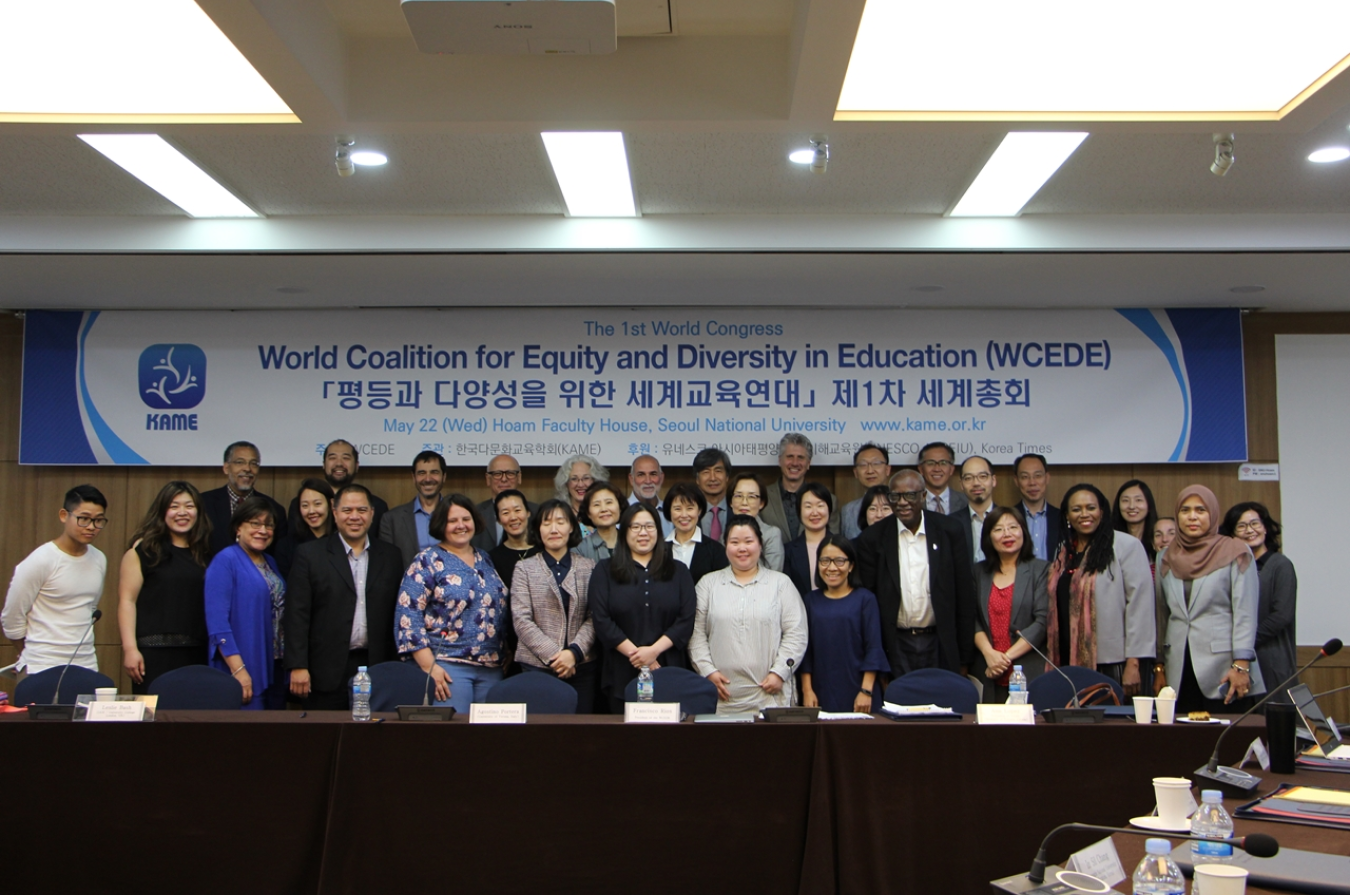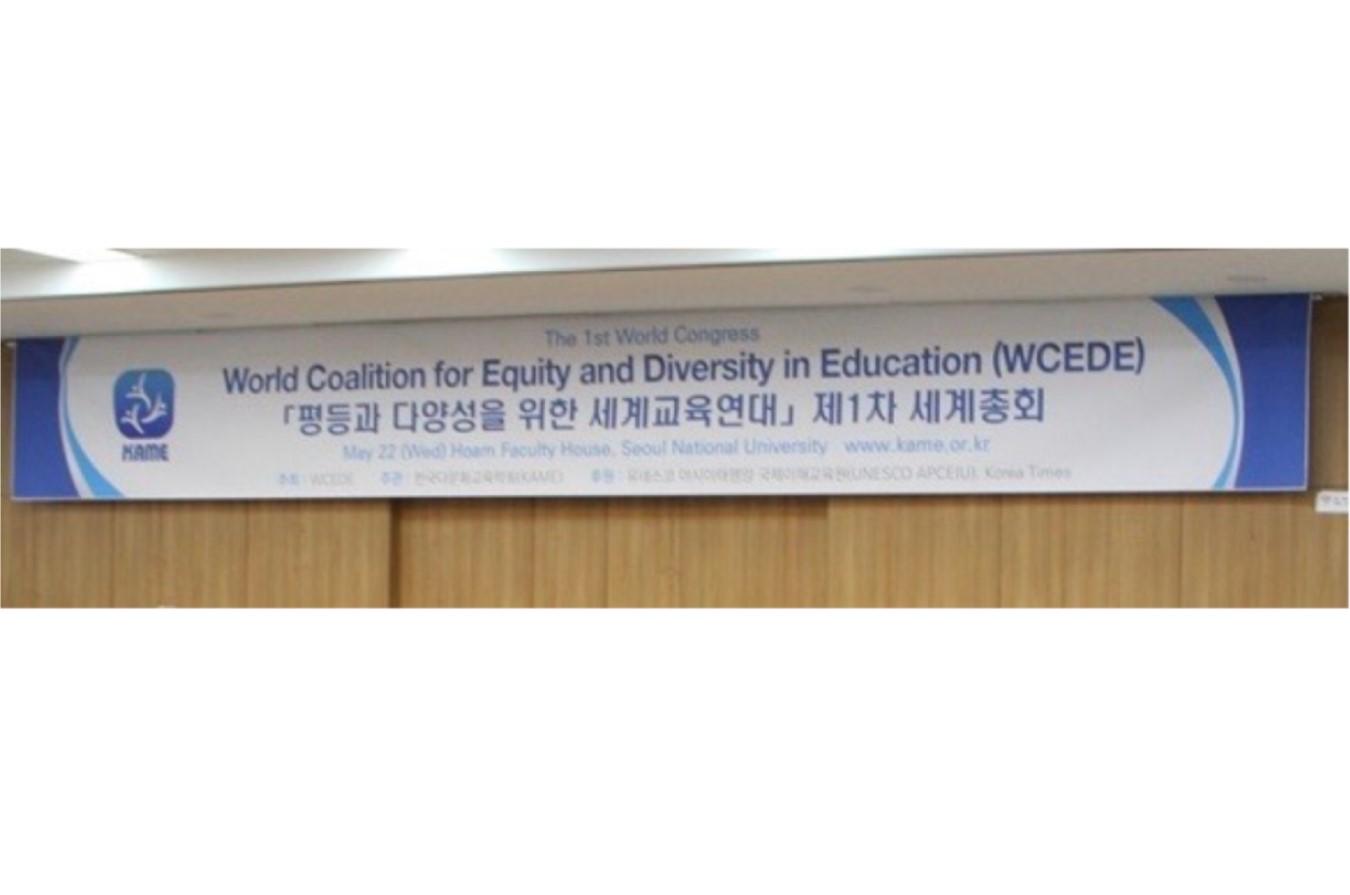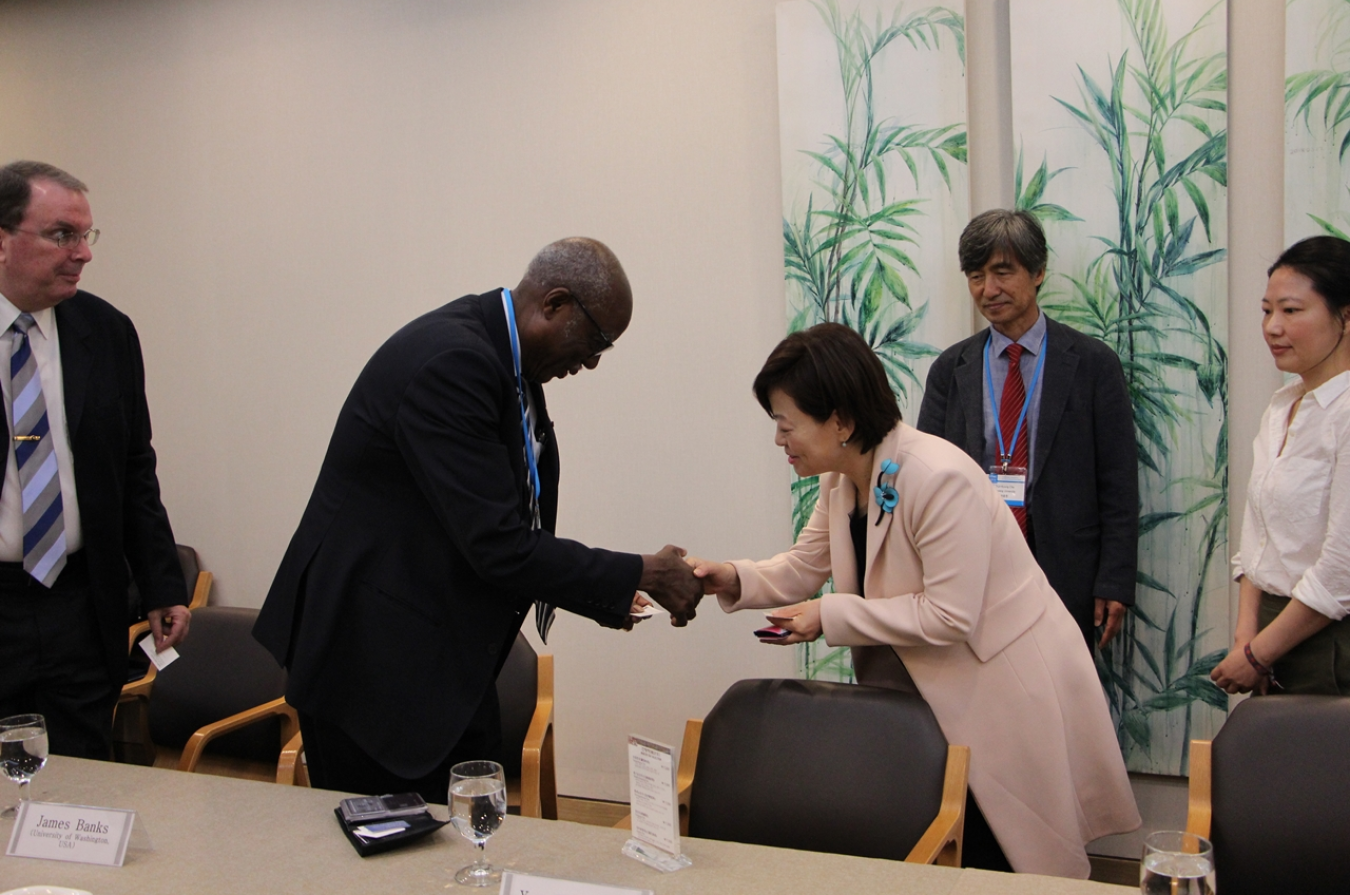Preamble
The following document should be viewed as a dynamic living document that can be modified according to changing societal contexts and due to input from new members joining WCEDE.
This statement of principles is rooted in a rights-based approach, in which the members of the WCEDE recognize the rights of individuals and their communities to receive an education based on equity, diversity and social justice. Such an approach is informed by the core aims and goals of critical multicultural education and critical intercultural education. Education is seen more broadly than only formal and also non-formal education. The WCEDE takes a holistic view of education, which also includes all professions and disciplines that incorporate education into their work. It also emphasizes the importance of life-long learning.
The set of principles set forth here serve as a vision statement for the World Coalition for Equity and Diversity in Education (WCEDE), though they are not intended to replace the missions and vision statements of the respective partner organizations of the WCEDE (see, Appendix A). This statement serves as a complementary document. It is also intended to serve as a guide to all educational stakeholders, helping to ground their educational efforts in such a manner that they assure equity, inclusion and diversity for all students so that they can to pursue an education that truly allows them to fulfill their full potential.
The members of WCEDE acknowledge that education is more than passive learning of information but involves active engagement with ones surroundings. This implies that young people are not just consumers of information but active creators of their environments, that they have a responsibility to actively address injustices in their living environments, and that educators serve as both role models and facilitators in this process. The WCEDE is committed to connecting research to action and civic engagement. It is also committed to exploring the root causes of various forms of injustice and generating awareness about these root causes.
We write this document at a particularly important time in the history of our planet. Humanity has witnessed many episodes of dehumanization, violent conflict, systemic oppression and gross injustices. Slavery, warfare, and colonialism are just a few examples of this. Across the globe presently we are witness to a wave of populist and extreme nationalist movements that have come into power or seek power. They are motivated by mythological and biased views of their own communities, as well as by distrust and often hatred of the other. Xenophobia and fear of newcomers has become mainstreamed and political parties have integrated such sentiments into their party platforms, eschewing any remnants of solidarity or human rights concerns. There are ongoing attempts to close borders to those seeking safe harbors and the marginalization of recent arrivals. This is occurring at a time when there are more refugees and internally displaced persons than any moment since the Second World War. We are witnessing a backlash of civil and human rights protections that threaten to erode the many gains made through centuries of political gains and social movements that have attempted to create more equitable societies. Despite the groundbreaking Paris accord, we are witness to the denial of global climate change at a time when there is almost unanimous agreement among experts that climate changes threatens our way of life, end especially the lives of communities that live in resource-poor areas. Unprecedented natural disasters are creating a wave of climate refugees. We are witness to war, civil conflict, and violence that have led to the displacement of people throughout the world. Prognoses for the future are that such displacements and resultant civil strife will continue.
History is replete with examples of individuals and communities rising up to combat these injustices and educators have played a key role in inspiring positive social change throughout that history. New social movements have arisen in response to these challenges, such as indigenous movements focused on securing rights that have been historically denied and young climate change activists who have rallied globally to protect the planet they are inheriting. More than ever, people engaged in positive social change are connected through the worldwide web and social media. The WCEDE strives to support such efforts through the educational expertise of its members.
As witnesses and global citizens, we recognize that these events are re/shaping how we address essential questions around educational equity and the pursuit of social justice questions of highest concern to the WCEDE and its respective member organizations. It rests on our understanding and recognition of the direct and profound impacts of these geopolitical events on the quality of education that is provided in educational contexts throughout the world.
We write this with a strong commitment to recognizing one of the most valuable of human resources--cultural heritage and diversity. In this regard, we stand with The United Nations Declaration of Human Rights (UDHR) and subsequent documents such as the UN Declaration on the Rights of the Child, the UN Refugee Convention and UNESCOs Declaration on Human Diversity. While not minimizing the common heritage of humanity, we also seek to preserve cultural diversity as a living, and thus renewable treasure that must not be perceived as being unchanging heritage but as a process guaranteeing the survival of humanity. At the same time, as with the UN declaration, we aim to prevent segregation and fundamentalism which places those cultural differences above Human Rights principles more broadly.
Simultaneously, we recognize that we are part of a new global reality that ties us together--across geopolitical lines--and provides new understandings of the interdependent nature of nations and communities across the globe. With new and revolutionary developments in information and communication technologies, digital learning and renewed approaches for learning from and with people across cultural and linguistic lines, come new opportunities to forge productive alliances, cross-cultural collaborations, and bolder educational projects and initiatives.




